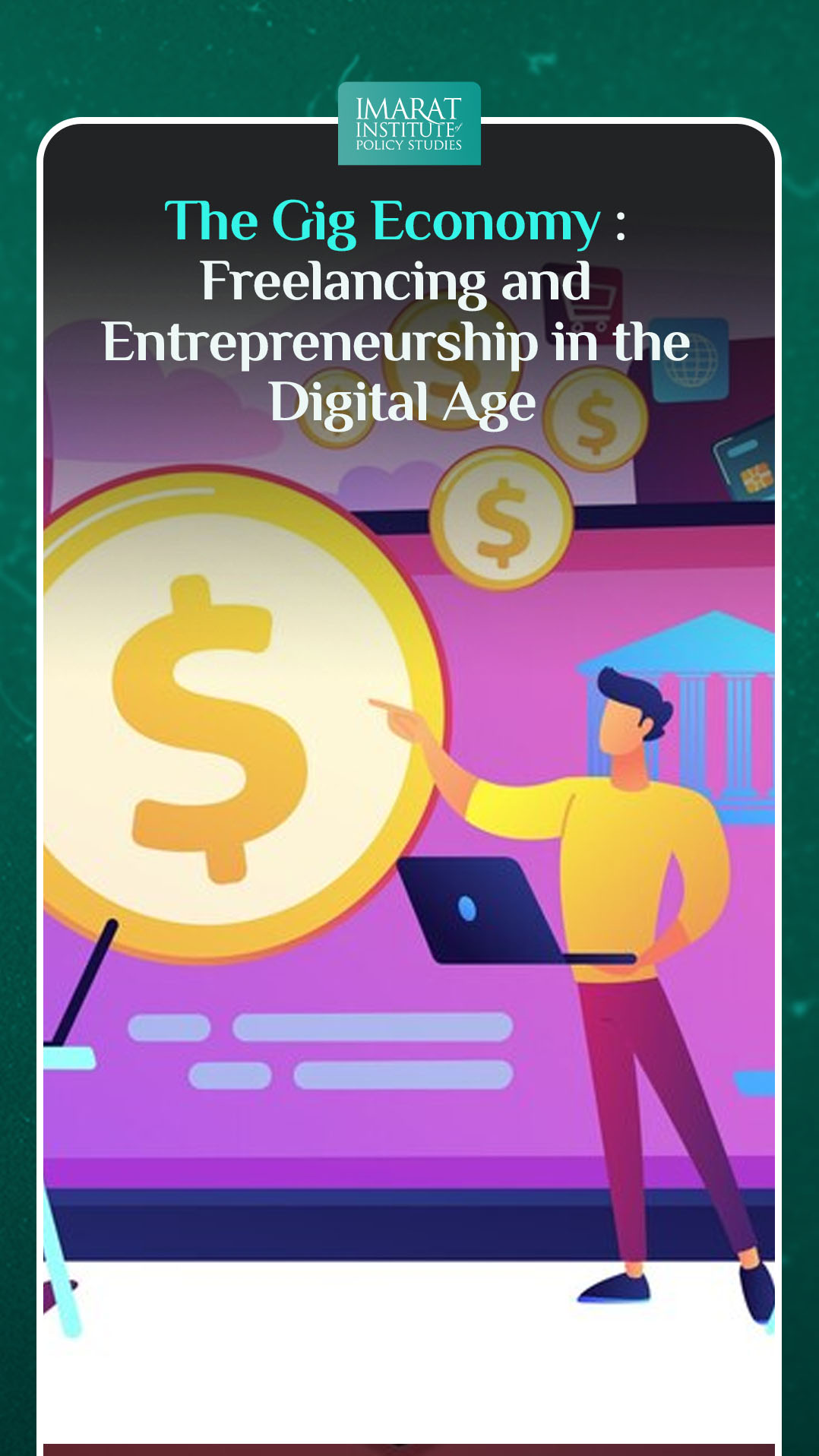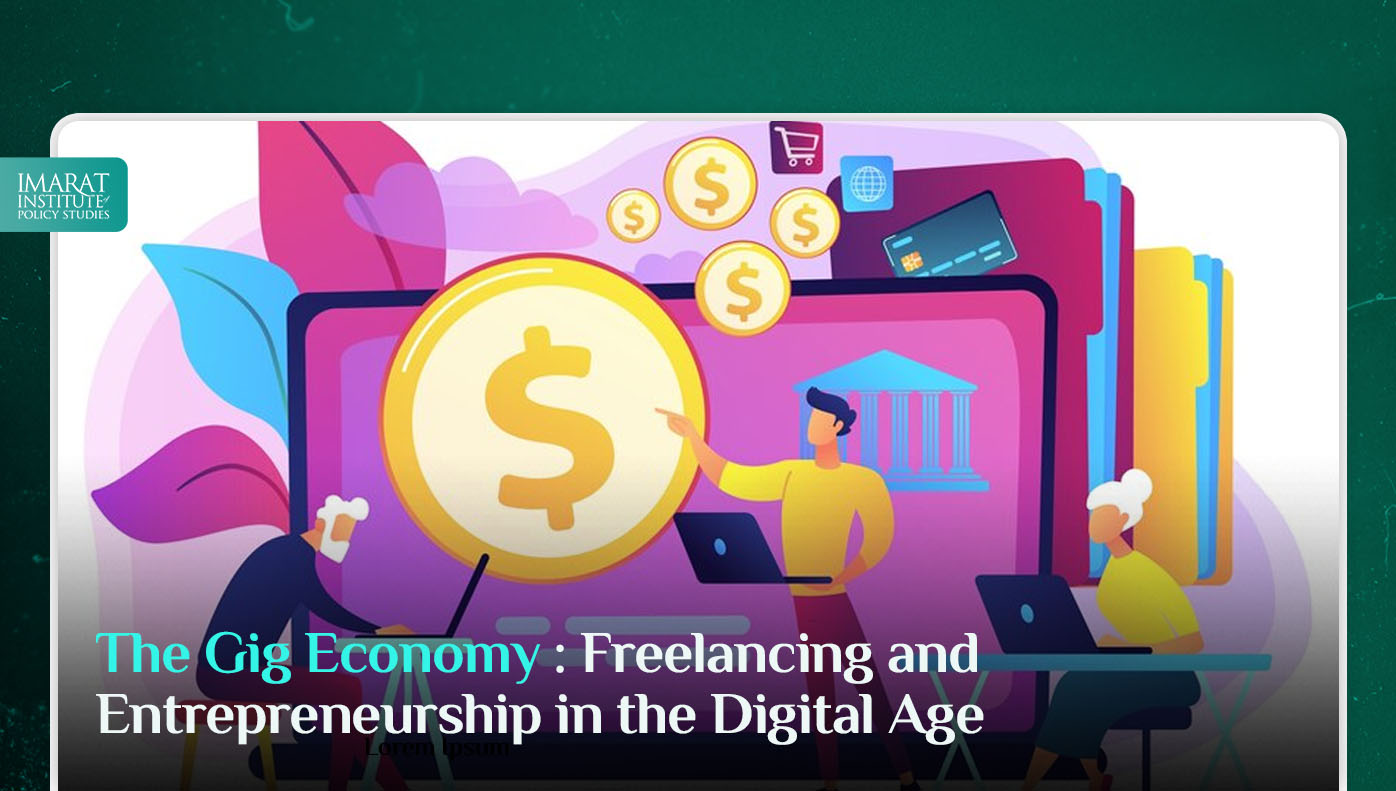In the rapidly evolving landscape of the modern workforce, the traditional 9-to-5 job is no longer the sole path to professional fulfillment and success. Instead, a dynamic and flexible alternative has emerged: the gig economy. In this digital age, freelancing and entrepreneurship have become increasingly viable options for individuals seeking independence, flexibility, and the opportunity to pursue their passions while harnessing the power of technology. Let’s delve into the intricacies of the gig economy, exploring its benefits, challenges, and tips for thriving in this new era of work.
Understanding the Gig Economy
The gig economy, characterized by temporary, flexible jobs, often facilitated through digital platforms, has reshaped the way people work and connect with opportunities. Freelancers, independent contractors, and entrepreneurs leverage their skills and expertise to offer services or create products on a project basis, catering to a diverse range of clients and customers.
Benefits of Freelancing and Entrepreneurship
Flexibility
One of the most enticing aspects of the gig economy is the ability to set your own schedule and work from anywhere with an internet connection. Whether you’re a night owl or an early riser, you have the autonomy to structure your workday according to your preferences.
Diverse Opportunities
The gig economy offers a multitude of opportunities across various industries and skill sets. From graphic design and content writing to web development and consulting, there’s something for everyone.
Work-Life Balance
Freelancing allows individuals to strike a better balance between work and personal life. With the freedom to choose projects and allocate time accordingly, you can prioritize activities that matter most to you, whether it’s spending time with family, pursuing hobbies, or traveling.
Skill Development
Engaging in freelance projects and entrepreneurial ventures exposes you to diverse challenges and experiences, fostering continuous learning and skill development. As you navigate different projects and collaborate with clients, you’ll refine your expertise and expand your knowledge base.
Challenges of the Gig Economy
Income Variability
While freelancing offers the potential for high earnings, income can be inconsistent, especially in the early stages. Fluctuations in project availability and payment timelines require careful financial planning and budgeting.
Self-Marketing
Success in the gig economy often hinges on your ability to market yourself effectively. Building a strong personal brand, creating an online presence, and networking are essential for attracting clients and opportunities.
Work-Life Integration
The boundary between work and personal life can blur in the gig economy, leading to burnout and exhaustion if not managed effectively. Setting boundaries, establishing routines, and practicing self-care are crucial for maintaining well-being.
Uncertain Benefits
Unlike traditional employment, freelancers and entrepreneurs may lack access to benefits such as health insurance, retirement plans, and paid time off. Seeking alternative solutions, such as freelance associations or independent benefits providers, is necessary to address these gaps.
Tips for Thriving in the Gig Economy
Specialize and Differentiate
Identify your unique strengths and skills, and position yourself as an expert in a specific niche or industry. By specializing, you’ll stand out from the competition and attract clients seeking your particular expertise.
Cultivate Relationships
Building strong relationships with clients, collaborators, and fellow freelancers is invaluable in the gig economy. Prioritize communication, reliability, and professionalism to foster long-term connections and referrals.
Invest in Continuous Learning
Stay abreast of industry trends, technologies, and best practices through online courses, workshops, and networking events. Embrace lifelong learning to remain competitive and adaptable in a rapidly evolving landscape.
Diversify Income Streams
To mitigate the impact of income variability, diversify your sources of revenue by pursuing multiple streams of income. This could include offering different services, creating passive income streams, or developing products alongside service-based work.
Prioritize Self-Care
Take proactive steps to maintain your physical, mental, and emotional well-being amidst the demands of freelancing and entrepreneurship. Incorporate regular exercise, mindfulness practices, and downtime into your routine to recharge and prevent burnout.
Conclusion
As we navigate the complexities of the modern workforce, the gig economy offers a compelling alternative for those seeking autonomy, flexibility, and fulfillment in their careers. By embracing freelancing and entrepreneurship in the digital age, individuals can harness the power of technology to create meaningful work, cultivate diverse opportunities, and thrive in an ever-evolving landscape. With the right mindset, skills, and strategies, you can embark on a journey of professional growth and success in the dynamic world of the gig economy.
This article is written by Radma Nouman. Radma is a research analyst at the Iqbal Institute of Policy Studies (IIPS).



Leave a Reply